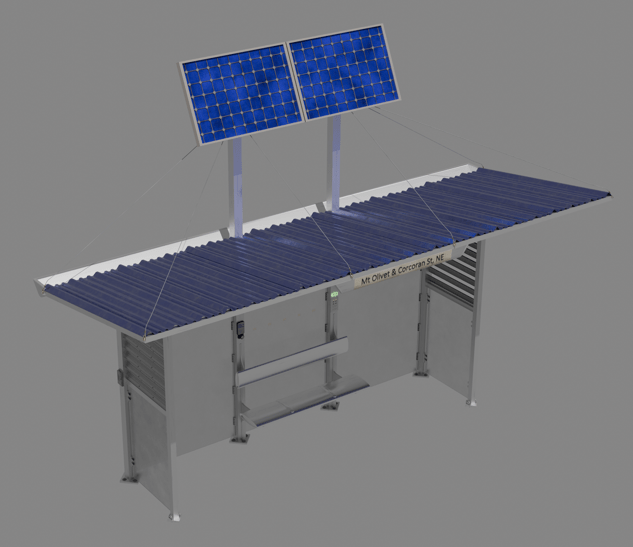Project Description:
Society is currently experiencing Earth’s most rapid warming period ever documented, increasing the impacts of the urban heat island effect. In July 2023, our planet reached unprecedented temperatures for four consecutive days in a row and set a record for the hottest day ever recorded (Heat Waves and Climate Change, n.d.). Individuals who spend more time outdoors, such as those waiting at bus stops, are particularly susceptible to heat-related illnesses. To address this, the team undertook a project to design a cooler bus shelter for the District of Columbia. By overlaying the Heat Sensitivity Exposure Index with multiple datasets obtained from Open Data DC in ArcGIS, a ward, a bus route, and a bus shelter were identified that demonstrated the greatest need for redesign. The structural stability of the proposed design was simulated with finite element analysis in SolidWorks and modeled for 3D printing in Blender. To evaluate the effectiveness of the design Rhinoceros 3D was applied to calculate the difference in Mean Radiant Temperature (MRT) as compared to the existing bus shelter design.
